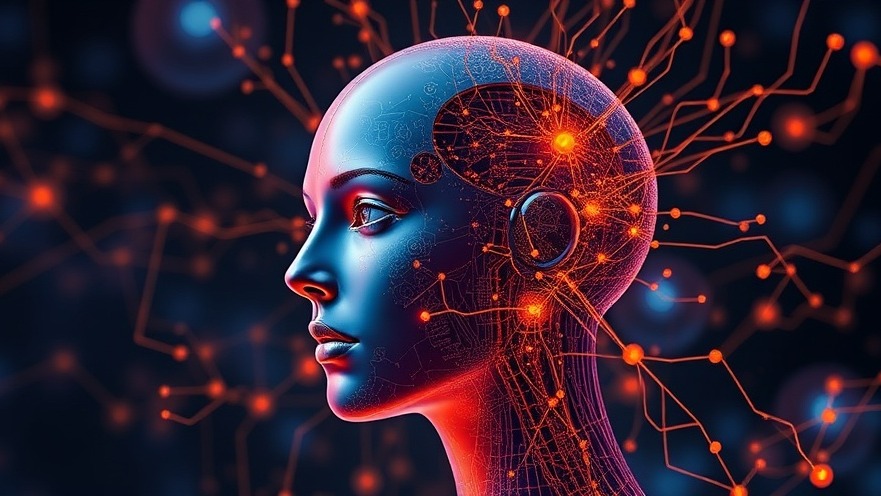
A New Era of AI: Introducing Anthropic's Claude 3.7 Sonnet
In an exciting stride forward in artificial intelligence, Anthropic has unveiled Claude 3.7 Sonnet, the industry's first hybrid reasoning AI model. Designed to solve more complex problems than its predecessors, Claude 3.7 Sonnet offers users the ability to navigate a blend of instant responses and thoughtful, reasoned answers. This noteworthy innovation aims to simplify AI interaction for developers and users alike.
What Sets Claude 3.7 Sonnet Apart?
Unlike conventional models that only deliver quick answers, Claude 3.7 Sonnet is a game-changer in autonomous reasoning. It allows users to control the depth of thought that the AI applies when addressing complex queries. Users can dictate how long Claude thinks before providing a response, thanks to a feature known as the “scratchpad,” which displays the model's reasoning process. This capability marks a significant leap beyond traditional large language models (LLMs), which excel at rapid tasks but stumble on more intricate decision-making.
Industry Comparisons and Competitive Edge
Anthropic's Claude 3.7 Sonnet faces stiff competition from other major players like OpenAI and Google. Each offers their variant of reasoning AI, yet Claude integrates both rapid and reasoned responses within a single model. Technical comparisons indicate that Claude scores higher on coding benchmarks, outperforming OpenAI's o1 model and distinguishing itself in areas that require critical thinking and nuance.
The Benefits of Hybrid Reasoning Models
Claude’s hybrid reasoning offers numerous advantages, particularly in fields requiring complex, methodical responses. With its ability to tackle technical problems or assist in legal queries, Claude shows promise for broad applications across industries. Dianne Penn, product lead at Anthropic, emphasized that Claude is especially adept at “agentic coding,” improving tasks that require careful planning and execution.
Future Insights: Where Could Claude 3.7 Sonnet Lead AI?
As AI continues to evolve, this new approach heralds a potential shift in how humans interact with machines. Anthropic's goal is to embed reasoning naturally alongside other capabilities, allowing Claude to autonomously determine the appropriate amount of cognitive processing time based on the complexity of a task. This vision could considerably streamline workflows in various sectors, making AI an even more indispensable tool.
Practical Applications and Industry Impact
Consider the implications for software development: with Claude Code—an “agentic” coding tool—developers can now input commands in plain English. Claude Code not only analyzes existing codebases but can also edit, test, and commit changes directly to repositories. This feature heralds the dawn of a new era in coding efficiency, allowing for direct interaction without the typical barriers posed by traditional coding tools.
Conclusion: Embracing an AI-Powered Future
The introduction of Claude 3.7 Sonnet represents a pivotal moment in AI advancements. As industries increasingly incorporate AI-driven systems, understanding and leveraging these innovative tools will be crucial. For tech enthusiasts and industry experts, Claude’s capabilities offer a glimpse into a future where AI not only aids in daily tasks but transforms the very fabric of how we engage with technology.
Stay informed about AI development and explore the vast potential of tools like Claude 3.7 Sonnet today.
 Add Row
Add Row  Add
Add 




 Add Row
Add Row  Add
Add 

Write A Comment